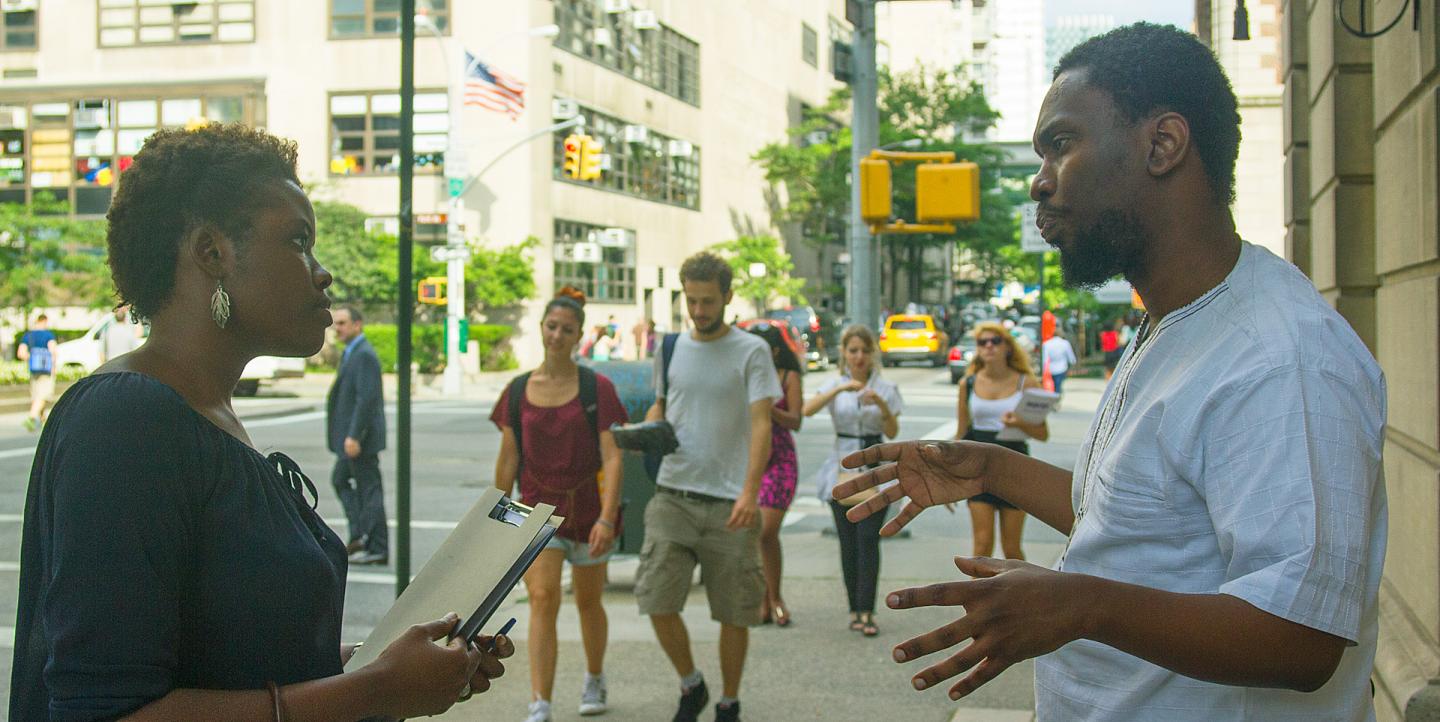Each month, IJNet features an international journalist who exemplifies the profession and has used the site to further his or her career. If you would like to be featured, email a short bio and a paragraph about how you have used IJNet here.
Rome-based freelance journalist Beatrice Ngalula Kabutakapua is shattering stereotypes of African migrants by showing how they live in 13 cities across the globe. She's co-producing the self-funded documentary series (IN)VISIBLE CITIES, which was presented at the International Journalism Festival in Perugia, Italy this month.
“With a strong background in journalism and communication, I use what I’ve learned…to approach and talk about ‘otherness’,” she writes on her blog.
She says IJNet has been essential to her training as a freelance journalist, for which there is "no formal education" available.
Her work has appeared on Radio France Internationale, The Guardian, the UN Department of Information, UN Green Up blog, L’Espresso, The South African and more. Kabutakapua is also a trainer in media and integration in Italian for AMU and in editorial writing in French for World Pulse.
How has IJNet helped you?
IJNet is invaluable for me to stay up to date with the latest news. On IJNet, I go through the latest articles on technology and how it can help journalists, especially freelance journalists. I remember in particular reading about how to use Twitter for projects and investigations, which is particularly useful for the current work I'm doing, in which I have to use social media to contact people and to look for information. Finally, I always check the latest fellowships and funding opportunities and share them with African journalists I know, since information often does not arrive to them.
You aim for "a media approach closer to the people." Can you explain what this means to you, and to your journalism?
A few weeks ago I was in Istanbul interviewing and filming African migrants. I got in touch with the one African community but they were really reluctant to be filmed. They told me once they were interviewed by a journalist and never saw the results—not a video, a link or an article. Hence, they grew suspicious of journalists. For me, this of course means extra psychological work, because it's easier on an emotional level to consider a person just a source of information and to collect that and leave. In my case, I approach people as I would approach an acquaintance. The result is that in the documentary series I'm working on, people talk to me as if they were with friends, and they are genuine.
What has been your best story or work so far?
Years ago I worked on an article for The Guardian about the Beatles’ last concert performed in Cardiff [in the UK], where I used to live. I loved working on that because there were so many layers of stories: I talked to a man in his seventies who was there that day; researched the urban history of the theater, which is now a shopping mall; talked to people about their memorabilia, etc. That was when I started to focus more on the many layers of reality. It's helping me now to produce stories I love to work on, such the story of refugees arriving to the U.S., or African migrants residing in Istanbul and being asked whether the color of their skin can be washed away.
What advice would you give aspiring journalists?
From my experience I can say that a journalist should be fearless and ready to challenge himself or herself in any situation. But that doesn't mean a person should be reckless; everything should be well-researched and thought out. Also, seek the advice of people who have more experience than you but don’t assume they will have all the answers—they can only guide you. Most importantly, keep your feet in the real world, and with people: talk to them, be one of them, and listen, listen, listen.
Image courtesy of Kabutakapua, pictured at left.


